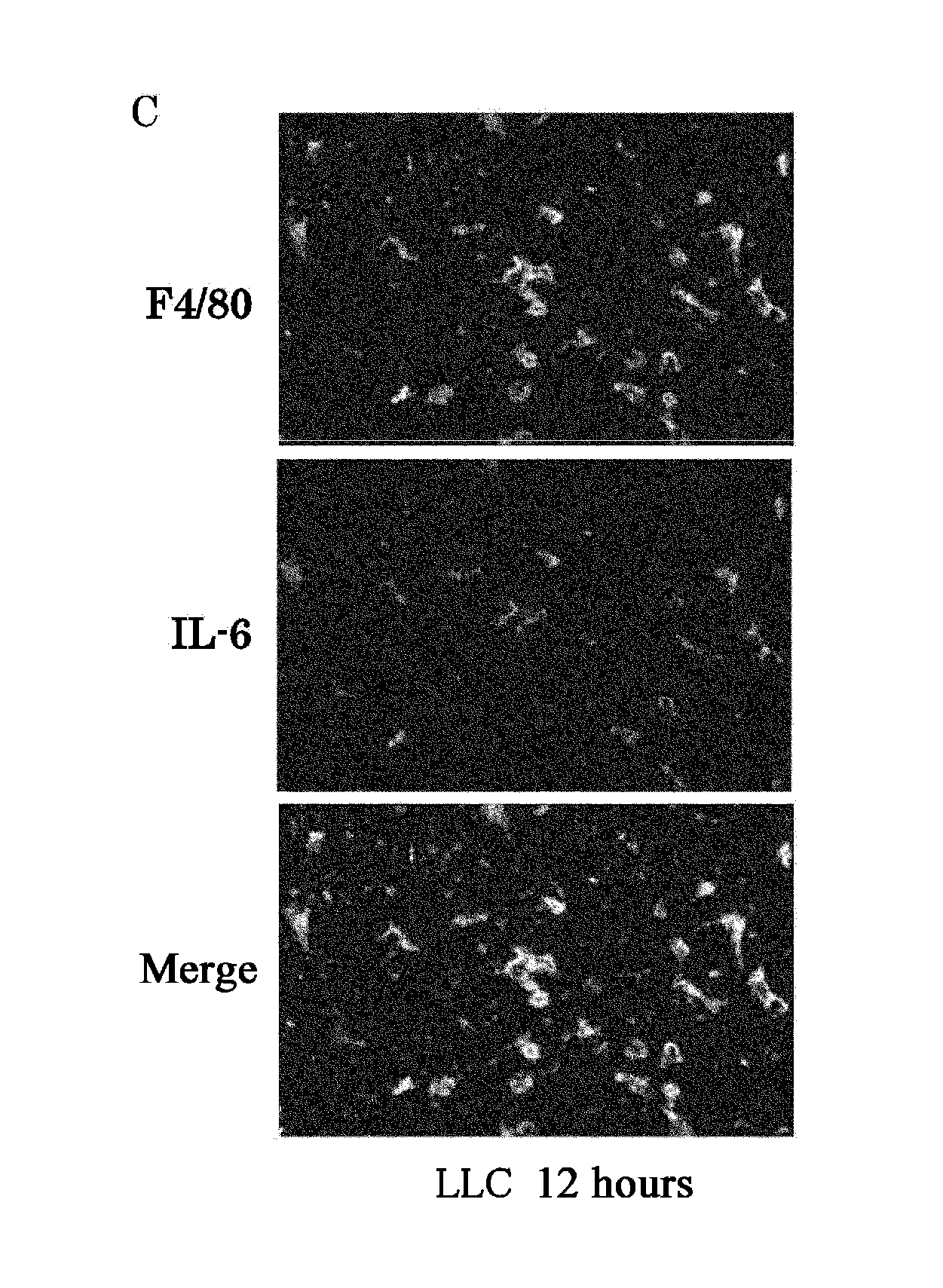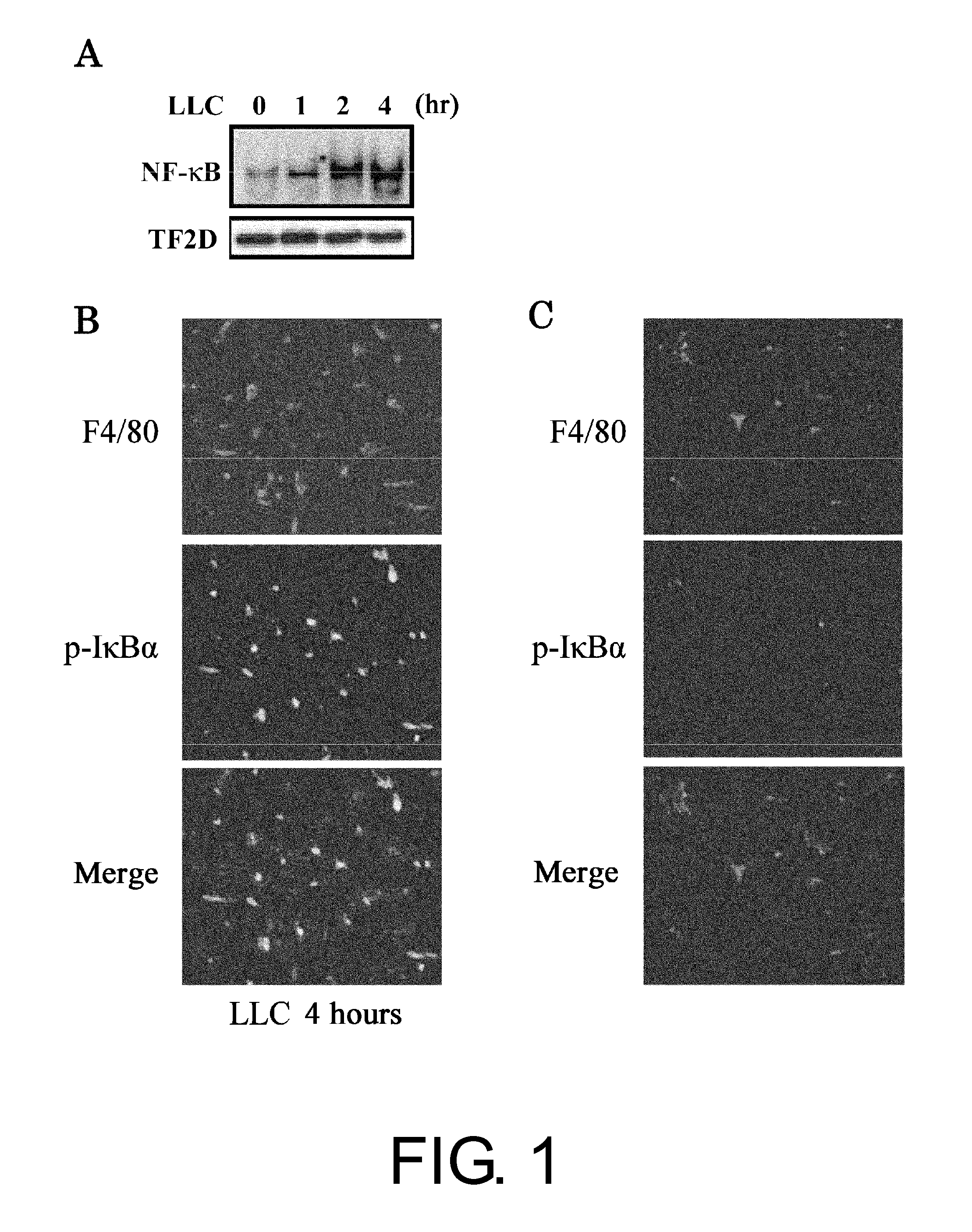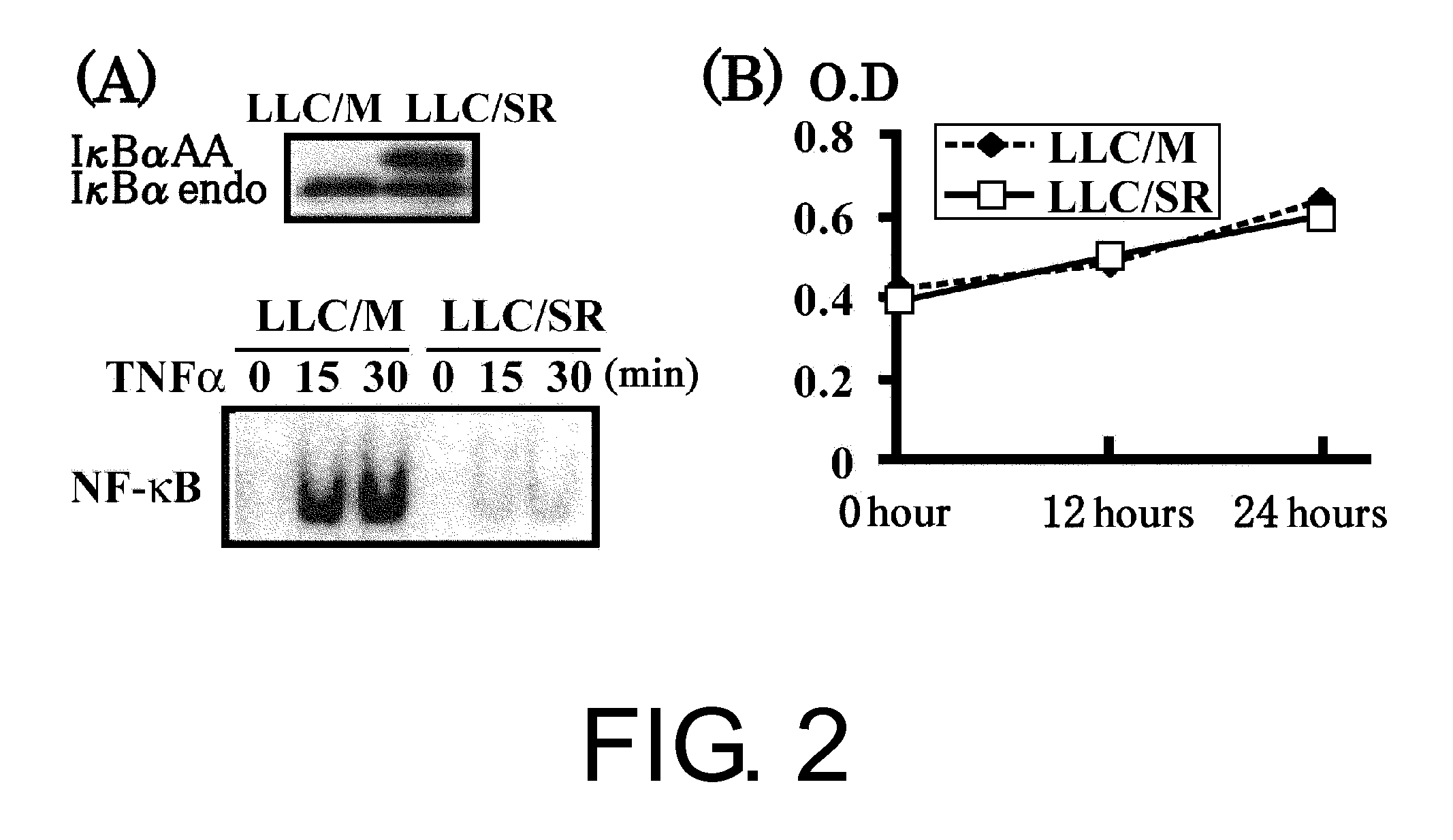Cancer Metastasis Inhibitor
a technology of metastasis inhibitors and metastases, which is applied in the field of cancer metastasis inhibitors, can solve the problems of poor prognosis, inability to develop new therapeutic methods for metastatic liver cancer, and poor natural course of the disease, so as to reduce the degree of metastatic tumor development, and promote angiogenesis and tumor growth.
- Summary
- Abstract
- Description
- Claims
- Application Information
AI Technical Summary
Benefits of technology
Problems solved by technology
Method used
Image
Examples
example 1
NF-κB Activation in Tumor Cells Does Not Affect Tumor Metastasis
[0196]To investigate the action of NF-κB activation on tumor metastasis, the present inventors injected Lewis lung cancer (LLC) cells, which have high metastatic potential, into the mouse liver through the spleen. Electrophoretic mobility shift assay (EMSA) determined that LLC inoculation activates NF-κB in the liver (FIG. 1A). Immunostaining of phospho-IκBα, which is a marker of NF-κB activation, was also observed in the liver four hours after LLC inoculation (FIG. 1B). Staining with F4 / 80, which is a marker of Kupffer cells or macrophages, showed that anti-phospho-IκBα staining (i.e., NF-κB activation) occurs mainly in Kupffer cells (FIG. 1B). NF-κB activation was not observed in PBS-injected (sham-operated) mice (FIG. 1C).
[0197]To investigate the role of NF-κB activation in liver metastasis, the present inventors stably expressed in LLC cells an undegradable IκBα protein, which is a mutant with substitutions of Ser32...
example 2
NF-κB Activation in Nonparenchymal Cells is Essential for Tumor Metastasis
[0199]To investigate the role of NF-κB activation in mouse liver metastasis, LLC cells were injected into the spleen of male mice which are homozygous for either a liver cell-specific IKKβ deletion (IkkβΔhep) or floxed Ikkβ allele (IkkβF / F) in which a portion of the target gene has been deleted (Maeda, S., et al. Immunity 19, 725-737 (2003)). In IkkβΔhep mice, IKKβ which is essential for NF-κB activation was absent from liver cells, but present in nonparenchymal cells (NPs) (Maeda S., et al. Cell 2005;121:977-990). The tumor number and the tumor-occupied area were not significantly different among IkkβF / F mice, Ikkβ+ / +:Alb-cre mice, and IkkβΔhep mice (FIGS. 4A and 4B). This suggests that the presence of IKKβ in liver cells did not affect metastasis of tumors induced by LLC cells. To examine the role of NP in metastasis, the present inventors crossed IkkβF / F mice with Mx-1-Cre transgenic mice which express Cre ...
example 3
IkkβΔL+H mice express a relatively low level of IL-6, and IL-6 deletion decreases metastatic tumor
[0200]Next, the present inventors investigated gene expression regulated by NF-κB in the LLC-injected liver and sham-operated liver using a real-time PCR array. The present inventors discovered that the mRNA expression of several genes was up-regulated by LLC injection into WT mice (Tables 1 and 2). The present inventors compared the expression levels of IL-1β, IL-6, and TNFα which were up-regulated in the array analysis of IkkβF / F, IkkβΔhep, and IkkβΔL+H mice. It was found that when tumors were injected into the spleen, the mRNA expression of IL-1β and IL-6 was induced in IkkβF / F and IkkβΔhep mice, but their expression was relatively low in IkkβΔL+H mice (FIG. 5A and data not shown). No difference was observed in the expression of TNFα mRNA in the liver before and after LLC injection in all of the strains (FIG. 5A and data not shown). Furthermore, the present inventors analyzed the mRN...
PUM
 Login to View More
Login to View More Abstract
Description
Claims
Application Information
 Login to View More
Login to View More - R&D
- Intellectual Property
- Life Sciences
- Materials
- Tech Scout
- Unparalleled Data Quality
- Higher Quality Content
- 60% Fewer Hallucinations
Browse by: Latest US Patents, China's latest patents, Technical Efficacy Thesaurus, Application Domain, Technology Topic, Popular Technical Reports.
© 2025 PatSnap. All rights reserved.Legal|Privacy policy|Modern Slavery Act Transparency Statement|Sitemap|About US| Contact US: help@patsnap.com



